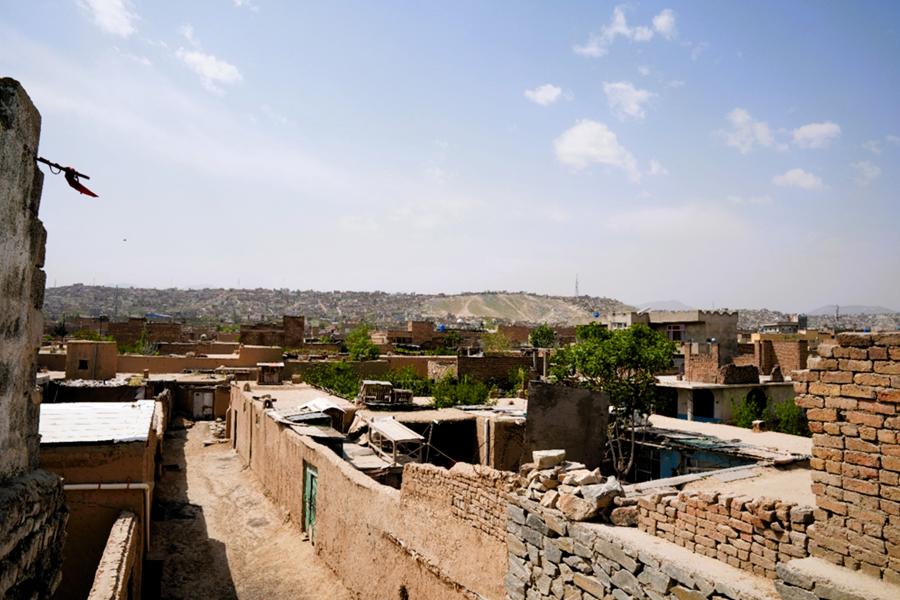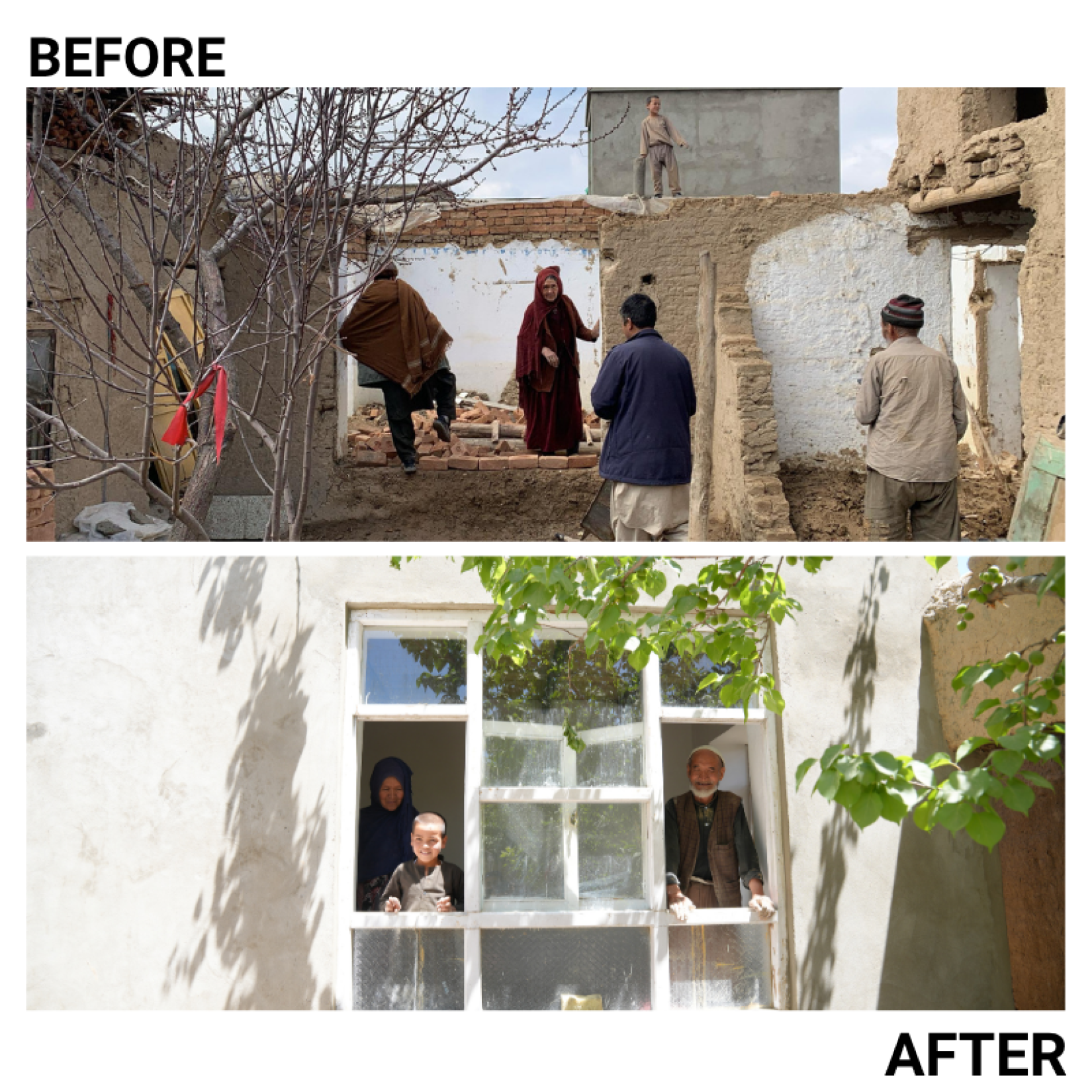Shelters of Hope: Supporting adequate and dignified housing solutions in Afghanistan
Inadequate housing remains a key challenge in Afghanistan. Thanks to partners and donors for supporting UN-Habitat initiatives in providing sustainable solution
Dasht-e Barchi, a neighborhood in Kabul, hosts one of the city’s largest informal settlements—home to thousands of families living in fragile shelters, many in inadequate housing conditions, such as Khawar, a 66-year-old grandmother who is the head of a household of 12 people. For Khawar, life has never been easy nor merciful. After losing her husband in 2015, things took a turn for the worse for her —her daughter developed psychological disorders, and her son is unable to find work – making live a constant struggle to make ends meet.
Despite these hardships, Khawar had one enduring wish. “I only wished for a safe and secure roof over my head,” she told UN-Habitat's community mobilisers. Pointing to her fragile shelter, she adds, “I was living in a life-or-death situation, always afraid the roof would tumble down on us.”
“I was hopeless,” Khawar says. “Every winter, the roof leaked. We placed bottles to collect the dripping water, but my grandchildren still got sick.” Over the past three years, Khawar’s home became more and more dangerous. “I was afraid the roof would collapse on my grandchildren,” she explains. Despite her efforts to repair and stabilize the shelter with what little she had, it was never enough – while she refused to give up hope.

With support from the Afghanistan Humanitarian Fund, UN-Habitat launched “The Shelter Initiative” for people most at risk of natural disasters, displacement, and climate shocks. And Khawar’s family was one of 645 vulnerable households selected for shelter support in 2024.
Afghanistan is currently witnessing a large influx of returnees forcibly expelled from neighboring countries such as Iran and Pakistan. Since 2023, over 3.4 million Afghans have returned home, with many more expected in the months to come . Many of them are looking for opportunities – in cities and, due to their socio-economic situation, are settling in already densely populated, often unplanned, underserviced and informal neighborhoods. The integration of additional populations puts enormous pressure on already overstretched services. But even with limited funding, targeted support like shelter repair is transforming lives—just like it did for Khawar.
Through UN-Habitat’s shelter initiative, Khawar’s house—along many others—has been repaired and rebuilt – giving families in vulnerable situations a roof, a home and hope.
She adds, “I never had such a home—neither in my father’s house nor in my husband’s. But now, at 66, my wish has come true. I live with my grandchildren in a safe shelter. Thanks to the Afghanistan Humanitarian Fund and UN-Habitat.”
Alina, Khawar’s 9-year-old granddaughter, adds: “Every night, I used to worry that parts of the roof would fall on us while we were sleeping. But now we feel safe—from the rain, the snow, and we no longer have fear.”

While the new shelter has brought Khawar and her family some stability, many challenges remain in place. Still, she hopes this home could mark the beginning of a longer journey towards improved life.
Since 2022, UN-Habitat has repaired or built over 6,883 shelters across Afghanistan—directly helping more than 50,000 people, with women and girls being the major group.
Stephanie Loose, UN-Habitat Afghanistan Country Programme Manager, underlines the importance of the agency’s impact and approaches: “Adequate shelter is a human right—not a privilege. Yet, thousands of Afghans live in inadequate housing with minimal access to basic services.” She adds, “The absence or inadequacy of shelter and proper housing solutions is a major issue in Afghanistan. People continue to endure enormous mental and physical pressures. We must do more all together to address these pressing needs – to enable people to live a dignified and self-sufficient life. It all starts with a home.”
Since 1992, UN-Habitat has been a lead housing agency in the country, delivering large programs across Afghanistan. Building on three decades of success, UN-Habitat remains committed to continuing to support Afghan communities by all means.

